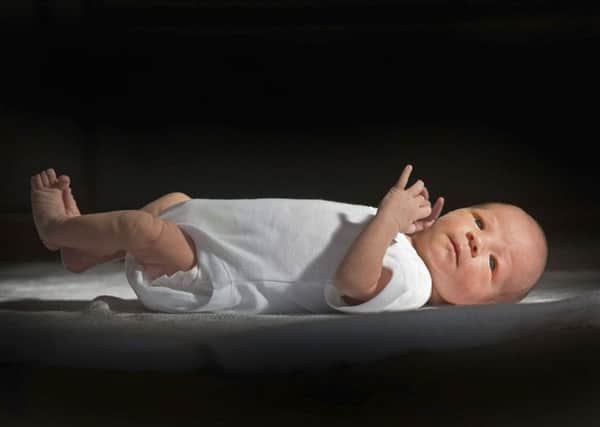Scottish midwife services may '˜buckle under pressure'


A rising number of older women having babies, along with rising obesity levels in expectant mothers, also means pregnancies are becoming more complex, according to the Royal College of Midwives’ (RCM) annual report. It said Scottish services remain good compared with the rest of the UK, but problems are now emerging.
Opposition parties last night accused the SNP government of a “decade of mismanagement” of the NHS, but health secretary Shona Robison insisted that ministers are dealing with the situation.
Advertisement
Hide AdAdvertisement
Hide AdDespite a recent dip, birth rates remain high in Scotland, with the number of births in 2016 matching 2006 levels and being up on the number at the start of the century.
But in Scotland, more than a fifth of pregnant women are now obese, which can lead to complications and require additional care. The increasing number of older mothers is also concern, the RCM said.
Births to women in their late 30s are up more than 2,000 since 2000, while births to women aged 40 or older are up by around 1,000. For women aged 45 or older, the number of births jumped from 29 to 143 between 2000 and 2015.
Meanwhile, Scotland’s ageing midwifery workforce remains a pressing issue, the report found. Midwives aged 50 or over now make up 41 per cent of the total workforce – the highest proportion in the UK – while at the same time the number of younger midwives is falling. Increases in student midwife numbers go some way to offsetting this, but more is needed, the RCM said.
RCM Scotland director Mary Ross-Davie said: “We have to stop Scotland facing the shortage of midwives that has blighted England for over a decade. We will do this by ensuring that all those midwives heading for retirement are replaced in good time. This needs careful planning for the future, but it needs doing now.
“What is important is that we have the right numbers of staff and resources to give all of these women the best possible care. Scotland’s maternity services are very good but there are signs it is beginning to buckle as demand rises.”
The recent Maternity and Neonatal Services Review also identified areas of best practice and outlined where improvements can be made to services to create “world-class maternity and neonatal care”, Ms Robison said.
Scottish Labour health spokesman Anas Sarwar said: “This is the clearest warning sign yet from Scotland’s midwives about the growing pressure and the demographic time bomb the profession faces.
Advertisement
Hide AdAdvertisement
Hide Ad“It was Nicola Sturgeon who slashed training places for nurses and midwives when she was health secretary and we are now seeing the consequences.”
Liberal Democrat health spokesman Alex Cole-Hamilton said: “This problem has been allowed to sneak up on the Scottish Government. They must now get to grips with the problem and ensure that Scotland’s midwives have the resources and support they need to do their job.”